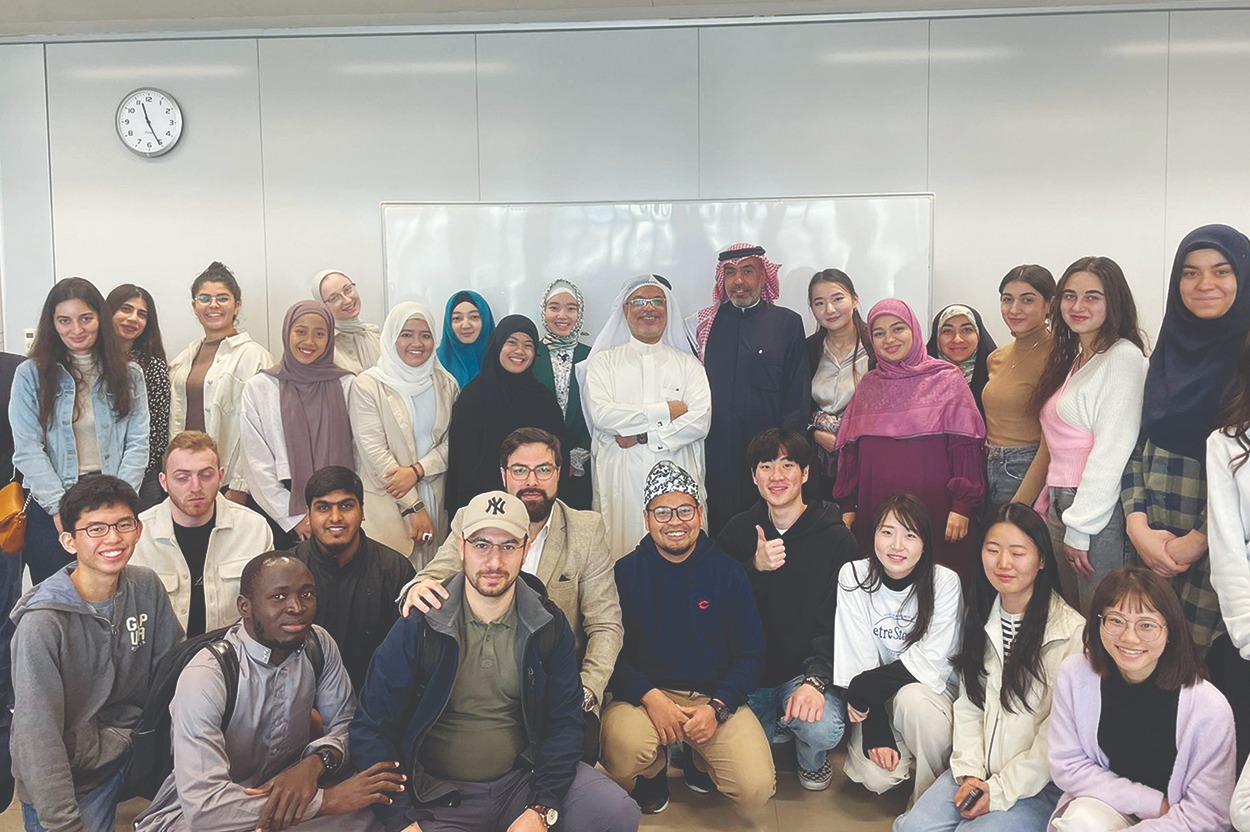
Students of the Faculty of Arab Studies of the Middle East and South Asia Department undergo an annual internship in the language countries they study. During the language practicum, according to the curriculum, along with the academic disciplines that take place at the university of that country, students choose "distance learning" disciplines at their discretion. This trend is still being utilized to their advantage. As for the current situation, the distance learning experience is beneficial for our faculty and students.
Thus, 3rd year students of my group undergo language practice in Arabic under a bilateral contract through the Kuwaiti University and the Embassy of Kazakhstan in Kuwait. This academic year, our students were allocated two grants to study Arabic language through the Embassy and with the support of the Ambassador Extraordinary and Plenipotentiary of the Republic of Kazakhstan in this country Azamat Berdibay. This grant was given to two students recognized as the best in academic performance, social activity - 3rd year students of specialty "Oriental Studies" Asem Erlanova and Nazerke Nauryzgalieva. While they are studying in Kuwait University, they can study lessons by "distance learning". Our university has created all conditions for this. Here students are given the right to choose credits for each subject, they receive assignments for the chosen subjects via the Internet and send their answers within the specified deadlines. And teachers check and evaluate their assignments through the internet. When students come from language practice, the grades are summarized and the results are summarized.
Hence, the "distance learning" system is very effective for the students. This is because in the absence of such a system, students studied subjects that they could not take during the language practicum, after the language practicum. At that time, the learners were losing a year of time. This is the main effectiveness of" distance learning". Student tutor-counselors are responsible for his lessons and education, even if they travel abroad. For example, in my experience, I will say that before students go abroad in the educational hour, I have a discussion about how they behave and travel abroad. I listen to the opinions of students who have previously gone before them so that they are fully informed. Students who go with this preparation will have an easier time studying and living there. An active student is active wherever they are. Two of our students at Kuwait University-Asem Erlanova and Nazerke Nauryzgalieva-are actively involved in community work. It has a student organization that is involved in activities of students from several countries around the world.
Our students have also proven themselves this year. We often communicate with them through the Internet, consult, listen to any problems that concern me. Our students are also in direct contact with the Embassy of the Republic of Kazakhstan in Kuwait. For example, in honor of the Independence Day, the Ambassador Extraordinary and Plenipotentiary of the RK in this country Azamat Rakhmankulovich visited the reception. The Ambassador warmly welcomed the students, asked them to stay and gave advice. Despite the fact that students study abroad, they know about everything that happens in the country. They take an active part in all the activities that take place at the embassy. They are also given constant support from the embassy. And from this we can see that they love their motherland, they are proud to be citizens of this country. And if we, teachers, can see at least some result of our knowledge and education, our work will not go anywhere.
Farida Zhumazhanova,
3rd year supervisor-adviser of the Middle East and South Asia Department